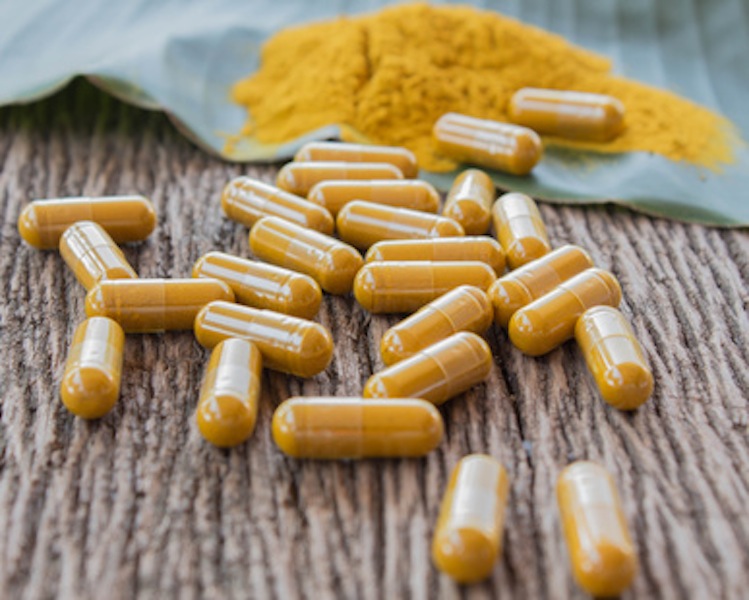Turmeric produces remarkable recovery in Alzheimer’s patients, according to recent research.
This spice also known as the “Indian solid gold” gets its nickname not only because of its gold color, but for the fact that it is worth its weight in gold when it comes to health benefits. Turmeric remains one the most researched plants in the world. Its medicinal properties have been the subject of over 6000 peer-reviewed and published biomedical studies.
It is truly a superstar spice, and new studies show that it can even kill multiple myeloma cells.
It seems like more studies are popping up everyday showing promising benefits when it comes to this wondrous spice and root.
According to the Alzheimer’s Association, “Alzheimer’s is the most common form of dementia, a general term for memory loss and other intellectual abilities serious enough to interfere with daily life. Alzheimer’s disease accounts for 60 to 80 percent of dementia cases.”
The Alzheimer’s Association reports that more than 5 million Americans are living with the disease. Every 67 seconds, someone in the United States develops Alzheimer’s.
A study published in the journal Ayu titled “Effects of turmeric on Alzheimer’s disease with behavioral and psychological symptoms of dementia” showed promising results for the benefits of turmeric for Alzheimer’s disease.
The researchers reported that three of their patients’ behavioral symptoms “improved remarkably,” when they were given 746 mg of turmeric a day for three months.
According to the abstract: “All three patients exhibited irritability, agitation, anxiety, and apathy, two patients suffer from urinary incontinence and wonderings. They were prescribed turmeric powder capsules and started recovering from these symptoms without any adverse reaction in the clinical symptom and laboratory data.”
After just three months of turmeric treatment, the symptoms of the patients and the burden on their caregivers were significantly improved.
The research team reports: “In one case, the Mini-Mental State Examination (MMSE) score was up five points, from 12/30 to 17/30. In the other two cases, no significant change was seen in the MMSE; however, they came to recognize their family within 1 year treatment. All cases have been taking turmeric for more than 1 year, re-exacerbation of BPSD was not seen.”
This study shows how powerful a simple natural treatment can be. Turmeric has been used for millenniums in Indian culture, and is known to provide powerful brain benefits.
A study published in the journal Neurology shows that Indian regions have a significantly lower prevalence of Alzheimer’s compared to Western nations. Could turmeric be a major reason for this?
Note: None of the information in our website is intended to diagnose, treat, cure or prevent any illness or disease. The content on our website is for educational purposes only.
New study shows turmeric kills multiple myeloma cells.
For the health benefits of turmeric.
REFERENCES:
1. “Turmeric Produces ‘Remarkable’ Recovery in Alzheimer’s Patients.” GreenMedInfo. GreenMedInfo, 10 June 2013. Web. 06 Sept. 2014.
2. “Incidence of Alzheimer’s Disease in a Rural Community in India: The Indo-US Study.” National Center for Biotechnology Information. Neurology, 25 Sept. 2001. Web. 06 Sept. 2014.
3. “Effects of Turmeric on Alzheimer’s Disease with Behavioral and Psychological Symptoms of Dementia.” National Center for Biotechnology Information. Ayu, Oct. 2012. Web. 06 Sept. 2014.
4. “Curcuminoids Enhance Amyloid-beta Uptake by Macrophages of Alzheimer’s Disease Patients.” National Center for Biotechnology Information. Journal of Alzheimer’s Disease, Sept. 2006. Web. 06 Sept. 2014. < >.
5. “1alpha,25-dihydroxyvitamin D3 Interacts with Curcuminoids to Stimulate Amyloid-beta Clearance by Macrophages of Alzheimer’s Disease Patients.” National Center for Biotechnology Information. Journal of Alzheimer’s Disease, 2009. Web. 06 Sept. 2014.
6. “The Curry Spice Curcumin Reduces Oxidative Damage and Amyloid Pathology in an Alzheimer Transgenic Mouse.” National Center for Biotechnology Information. The Journal of Neuroscience, 1 Nov. 2001. Web. 06 Sept. 2014.
7. “What Is Alzheimer’s?” Alzheimer’s Association. Alzheimer’s Association, n.d. Web. 05 Sept. 2014.
8. “Alzheimer’s Facts and Figures.” Alzheimer’s Association. Alzheimer’s Association, n.d. Web. 04 Sept. 2014.[/box]

















